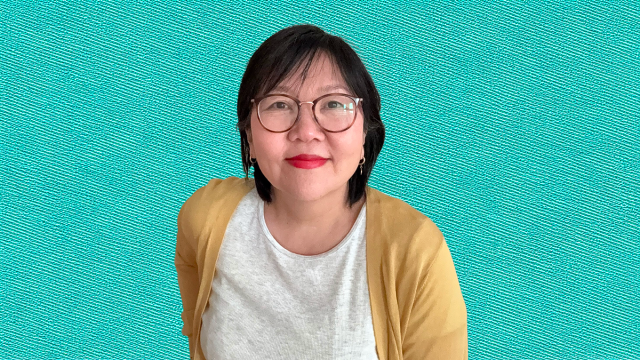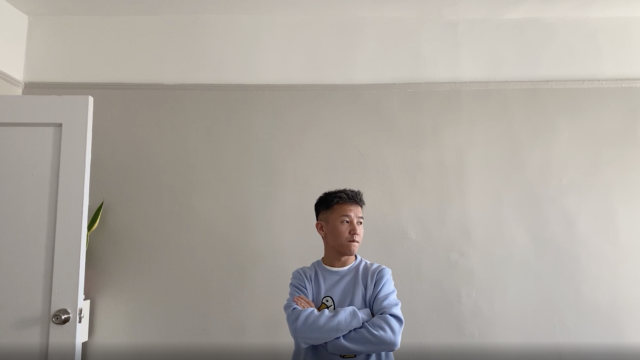Hello and welcome to the latest edition of The Moscow Times’ Regions Calling newsletter, your weekly guide to the key trends and events shaping life and politics in Russia’s regions.
This week, MT’s special correspondent Leyla Latypova reflects on a recent Russian opposition event that she attended in a European capital. Although it ostensibly united exiled activists and opinion makers, she found the unhealthy power dynamic between the ethnic Russian majority and the few Indigenous attendees reflective of the troubles brewing inside the country.
Subscribe here so you never miss an issue.
When you imagine a gathering of exiled Russian opposition activists and thinkers, you likely picture something like a parliamentary debate in a Western democracy: a passionate discussion punctuated by the occasional lighthearted moment, not unlike the viral exchange between then-Prime Minister Mark Rutte and PVV leader Geert Wilders in the Dutch parliament.
But as a male Russian colleague stood up behind me and interrupted me by shouting “Nice question!” in a tone so hostile that I expected an ethnic slur to follow right after, I felt transported back to my Russian school, where the resident bully made himself heard from the back of the class as I scrambled to solve a math problem on the whiteboard.
In line with Chatham House Rules and to adhere to safety guidelines, I will not disclose names, location or other details of the gathering where this interaction occurred. These details are rather inconsequential for the scope of this piece.
Exiled Russian opposition politicians and activists have been meeting to strategize for a post-Putin world since the early months of the invasion of Ukraine.
Until fairly recently, these gatherings have been largely homogeneous, bringing together the usual figures from Moscow and St. Petersburg.
But as voices from Russia’s ethnic republics have become increasingly noticeable to international actors — thanks to the efforts of dozens of Indigenous rights and decolonial groups facing mass repressions at home — conference organizers have started introducing tacit quotas for Indigenous representatives.
This hardly makes these events more reflective of the diversity found inside Russia. Indigenous people remain disproportionately underrepresented on panels and among attendees.
More importantly, these quotas do not help to build bridges between Moscow liberals and the communities colonized by Russia.
When it comes to envisioning the future of their nations, Russia’s Indigenous activists and thinkers are firmly divided into two camps: the federalists and the proponents of independence.
While the former believe that their republics can exist as part of a reconceptualized Russian Federation, the latter believe that their communities will not have access to justice and enjoy rights guaranteed to them by international law unless they become independent states.
Members of the Russian opposition and many of their Western allies are petrified of the idea of Russia’s disintegration along its regional borders following the inevitable end of Putin’s reign.
Yet their behavior towards Indigenous counterparts — like what I witnessed at this recent conference — makes that unwelcome scenario increasingly likely.

Though the names of most Indigenous activists might be unfamiliar to the public in Moscow and other historically Russian cities, this doesn’t make them any less influential in their own communities.
Indigenous activists are not just thought leaders, trend-setters and celebrities in their home republics — they are also world-traveled and world-educated doctors, engineers, scientists, lawyers, historians and writers.
Yet at the event I attended, I saw again and again how their Russian counterparts talked down to them and openly questioned their expertise and knowledge of the regions where their families lived for centuries.
“I hope Indigenous activists know how to interpret statistical data,” one Russian colleague told me with a smirk after claiming that ethnic Russians constitute a majority in my native Bashkortostan despite census data repeatedly suggesting otherwise.
Both the 2010 and 2020 Russian censuses put the number of ethnic Russians in Bashkortostan at around 37%, while Indigenous Bashkirs and Tatars comprise over 50% of the population combined. (Bashkirs and Tatars are Turkic groups with mutually intelligible languages and closely intertwined cultures.)
Historical data also suggest that many Bashkirs and Tatars living in Bashkortostan have adopted hybrid identities and often code-switch between Bashkir and Tatar depending on the political and social context.
The aforementioned colleague suggested that census data on native language should be used as a more reliable way to determine the republic’s ethnic makeup — a view with which I wholeheartedly disagree.
Centuries of russification resulted in Russian being the mother tongue of most Indigenous peoples across Russia and the formerly colonized Soviet states, but it did not make them any more ethnically Russian. I, for one, identify as a Bashkirian Tatar despite Russian being my unchosen mother tongue.
This blatant questioning of Indigenous expertise that bordered on racism was not the only appalling thing that I observed.
As the discussion drifted toward the future of ethnic republics within Russia, I heard takes not unlike those used by the Kremlin to justify the invasion of Ukraine: “ethnic Russians in the republics feel oppressed,” “local governments force ethnic Russians to abandon their identities.”
Indigenous activists’ attempts to rebut these claims were met with undisguised giggles and murmurs from the majority Russian audience, some of whom complained that certain Indigenous speakers' Russian was supposedly subpar.
Yes, 11 years into Putin’s bloody quest for “protecting Russian speakers in Ukraine,” linguistic purism has not lost its support base in the ranks of the Russian opposition.
Unlike their Russian counterparts, Indigenous activists are universally multilingual. Many of them were raised speaking their Indigenous tongues and learned Russian, English and other fourth and fifth languages later in life. Most of them were shamed for their imperfect Russian at school.
While I was overcome with horror and fury as I witnessed all this, my Indigenous colleagues remained stoic and calm.
Just like an imperfect command of the Russian language, an emotional reaction from a member of the ethnic majority is always forgiven and forgotten. For an Indigenous person, it could mean the end of their political career.
Some observers warn that Russia’s disintegration would inevitably result in bloodshed and violence stemming from the Indigenous populations’ alleged inexperience and cultural upbringing.
Yet in that conference room, it was my Indigenous colleagues, not their Russian counterparts, who demonstrated a level of discipline suitable for world-changing nonviolent campaigns.
If some of them walked into that room as “federalists” and walked out thinking that their people would be better off alone than humiliated, who could blame them?
A Message from The Moscow Times:
Dear readers,
We are facing unprecedented challenges. Russia's Prosecutor General's Office has designated The Moscow Times as an "undesirable" organization, criminalizing our work and putting our staff at risk of prosecution. This follows our earlier unjust labeling as a "foreign agent."
These actions are direct attempts to silence independent journalism in Russia. The authorities claim our work "discredits the decisions of the Russian leadership." We see things differently: we strive to provide accurate, unbiased reporting on Russia.
We, the journalists of The Moscow Times, refuse to be silenced. But to continue our work, we need your help.
Your support, no matter how small, makes a world of difference. If you can, please support us monthly starting from just $2. It's quick to set up, and every contribution makes a significant impact.
By supporting The Moscow Times, you're defending open, independent journalism in the face of repression. Thank you for standing with us.
Remind me later.








